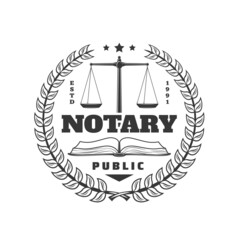
False affidavits can lead to severe legal consequences, including criminal charges, financial penalties, and disqualification from certain legal rights. Understanding the risks of providing false information in a sworn statement is crucial to avoiding legal trouble. This guide explores the legal implications of false affidavits in Nepal, their consequences, and how to ensure compliance with notarization laws.
What is a False Affidavit?
An affidavit is a written statement sworn to be true before a legal authority, such as a notary public. A false affidavit contains misleading, incorrect, or deliberately fabricated information. Under Nepalese law, providing false statements in affidavits can lead to prosecution under perjury laws and other legal provisions. According to Section 108 of the National Penal Code, 2017, making false declarations under oath is punishable by law.
Legal Implications of Providing a False Affidavit
Falsifying an affidavit can have significant legal and financial consequences. The key implications include:
1. Criminal Charges
- Filing a false affidavit is considered perjury, a criminal offense under Nepalese law.
- Offenders can face imprisonment for up to two years, fines, or both, as per Section 193 of the Evidence Act, 2031 (1974).
- Courts may reject any legal claims based on fraudulent affidavits.
2. Financial Penalties
- Nepalese law imposes heavy fines on individuals found guilty of submitting false affidavits, often up to NPR 50,000, depending on the severity of the case.
- In business and real estate cases, fraud-related affidavits may result in additional monetary liabilities and potential seizure of property.
3. Legal Disqualification and Civil Liabilities
- A person found guilty of submitting false affidavits may lose credibility in future legal matters.
- They may be disqualified from signing further legal documents or contracts.
- Civil lawsuits can be filed against individuals who misuse affidavits to gain unfair advantages.
Relevant Nepalese Laws on False Affidavits
Nepalese law has stringent regulations against falsification of documents. The following laws address perjury and affidavit fraud:
- Notary Public Act, 2063 (2007) – Governs the notarization process and penalizes false statements.
- Evidence Act, 2031 (1974) – Defines perjury and legal consequences for false testimony.
- National Penal Code, 2017 – Covers criminal liabilities for fraudulent legal declarations.
- Civil Procedure Code, 2074 (2017) – Allows courts to impose sanctions on those found guilty of submitting fraudulent documents.
Examples of Cases Where False Affidavits Can Lead to Legal Action
False affidavits have serious repercussions in various legal situations, including:
1. Property and Real Estate Transactions
- Submitting a fraudulent affidavit to claim property ownership can result in lawsuits and criminal prosecution.
- Real estate deals relying on false affidavits may be declared void under Nepalese property laws.
2. Immigration and Travel Documentation
- Providing a false affidavit for visa or passport applications can lead to bans and legal action.
- Authorities may impose travel restrictions on individuals involved in affidavit fraud, leading to long-term immigration consequences.
3. Business and Employment
- Fraudulent affidavits in business contracts can lead to breach of contract lawsuits and financial losses.
- Employment verification through false affidavits can result in termination and potential blacklisting from future employment opportunities.
How to Avoid Legal Risks When Preparing an Affidavit
To ensure compliance with Nepalese laws and avoid the consequences of false affidavits, follow these guidelines:
- Ensure Accuracy – Verify all information before signing an affidavit.
- Consult Legal Experts – Seek professional guidance when drafting sworn statements.
- Use Notary Services – Have your affidavit notarized by a certified notary public (Notary Sewa).
- Understand the Legal Ramifications – Familiarize yourself with Nepalese laws related to affidavits.
- Keep Evidence – Retain copies of supporting documents to validate your affidavit claims.
Related Notary and Legal Services
For proper affidavit notarization and legal documentation, you may need the following services:
- Document Notarization – https://notarysewa.com/documents-notarization
- Power of Attorney Services – https://notarysewa.com/powers-of-attorney
- Business Contract Notarization – https://notarysewa.com/business-contracts-notarization
- Real Estate Document Verification – https://notarysewa.com/real-estate-transactions-notarization
Conclusion
False affidavits carry severe legal risks and can have long-term consequences on legal credibility, financial stability, and personal freedom. Ensuring the accuracy and legitimacy of affidavits is crucial to avoid criminal charges and penalties. If you need assistance in preparing legally sound affidavits, consult Notary Sewa for expert notary and legal services.
